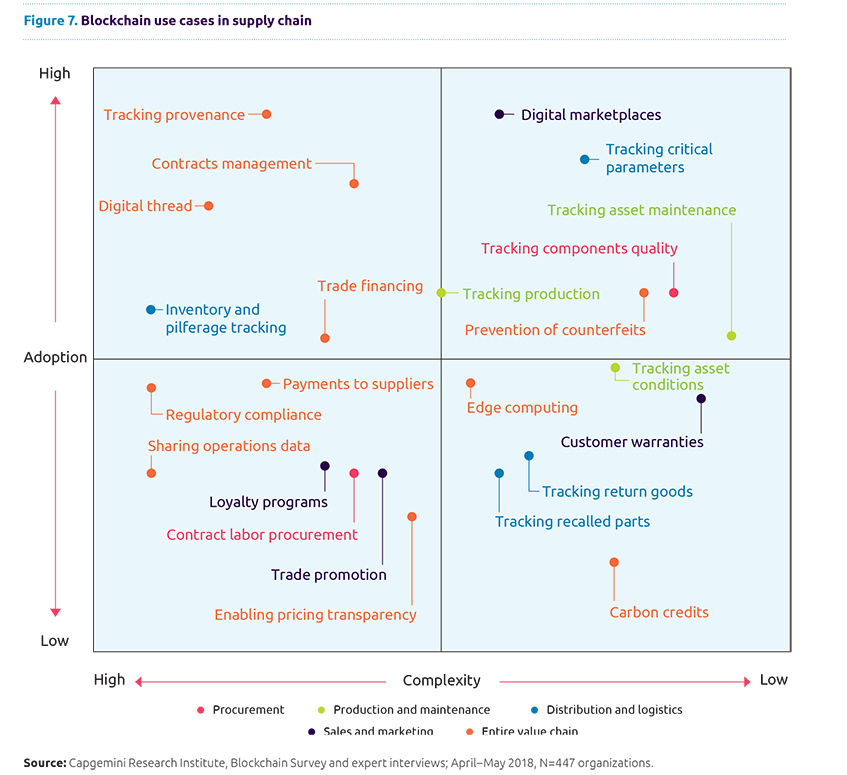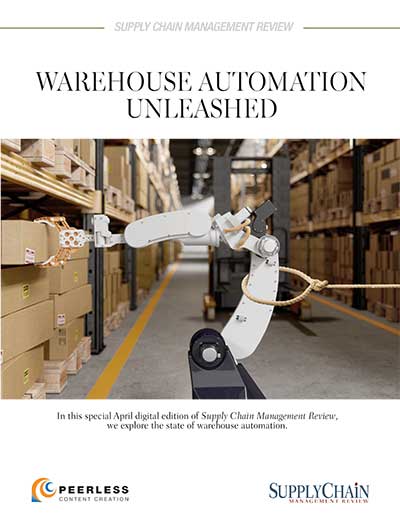A new study conducted by Capgemini notes that despite the barriers facing blockchain, 87% of survey respondents said they are at least in the early stages of blockchain experimentation and the top drivers behind investments are cost saving (89%), enhanced traceability (81%) and increased transparency (79%).
Walmart's announcement of a food safety blockchain solution, and Nestlé, Unilever, Tyson Foods, and Starbucks' blockchain trials also show possibilities.
Among the observations contained in the study are these:
- Key drivers of blockchain investments: cost saving (89%), enhanced traceability (81%) and enhanced transparency (79%).
- Barriers to implementation: lack of clear ROI (66%), immature technology (65%), and regulatory challenges (61%).
- Recommendations for a blockchain supply chain strategy: assess skills of current employees, measure success like a venture capital firm, implement security controls before scaling, and join a consortium to achieve standardization.

Joe Vernon, practice leader supply chain analytics at Capgemini, told SCMR in an interview that risk aversion is making block chain attractive for many reasons.
“While supply chain managers may be having a hard time quantifying the return on investment with implementation, the vulnerability of existing systems gets everyone's attention…especially in food services and pharma.”
At the same time, authors of the study note that while blockchain has many potential use cases, organizations should be sure they are not using it to address a perceived problem that could be solved by an alternate solution.
“Organizations should ask themselves whether their current supply chain solutions, with additional customization, can offer the same benefits as a blockchain implementation,” the report stated.
Still, Blockchain may be the right answer if the following are true:
- Traceability and its authenticity are a critical aspect of the supply chain and are difficult to achieve with the current set up
- The organization is seeking to eliminate or minimize costs associated with certain intermediaries, such as cost for proof of delivery or an audit process to improve efficiency across the entire value chain
- The organization wants to look at new trust-based business models that are made possible by blockchain.
“The benefits of blockchain lie in its transparency, traceability, and immutability,” stated the report.

According to Capgemini, managers should determine which pain points in their supply chain they want to address, clearly assess whether blockchain is the best solution, and identify the use case they want to initially run as a proof of concept before scaling up.
“It's like building with Lego blocks,” said Vernon. “You create a foundation, and work your way up the chain. We believe that the adaptation of this technology is about to be widely embraced, but in a measured, calculated way.”
SC
MR


Latest Supply Chain News
- Tech investments bring revenue increases, survey finds
- Survey reveals strategies for addressing supply chain, logistics labor shortages
- Israel, Ukraine aid package to increase pressure on aerospace and defense supply chains
- How CPG brands can deliver on supplier diversity promises
- How S&OP provides the answer to in-demand products
- More News
Latest Resources

 Explore
Explore
Business Management News
- Survey reveals strategies for addressing supply chain, logistics labor shortages
- How CPG brands can deliver on supplier diversity promises
- How S&OP provides the answer to in-demand products
- AI, virtual reality is bringing experiential learning into the modern age
- Tips for CIOs to overcome technology talent acquisition troubles
- There is still work to do to achieve supply chain stability
- More Business Management
Latest Business Management Resources

Subscribe

Supply Chain Management Review delivers the best industry content.

Editors’ Picks





